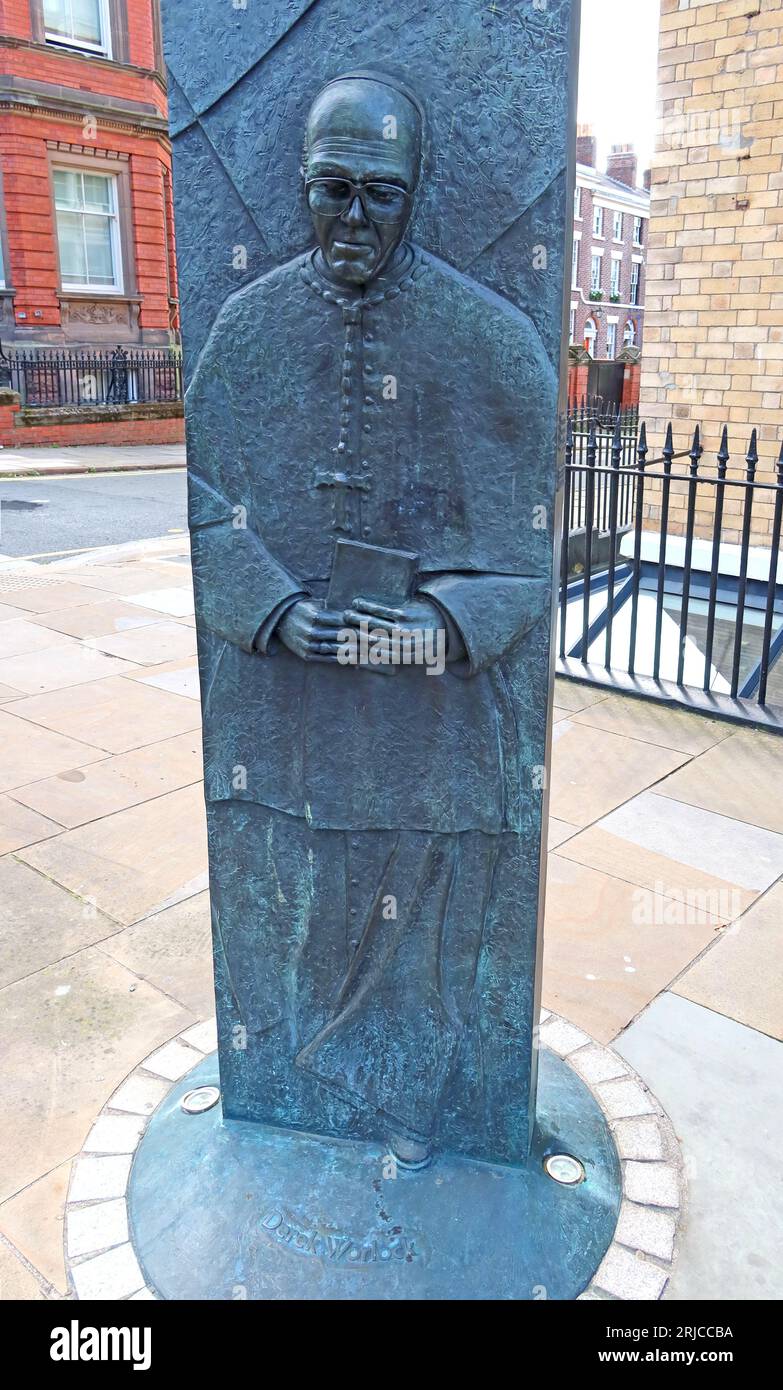Derek Worlock Archbishop of Liverpool bronze statue, Hope St, Liverpool, Merseyside, England, UK, L1 9BW

Image details
Contributor:
Tony Smith / Alamy Stock PhotoImage ID:
2RJCCBAFile size:
48.6 MB (2.3 MB Compressed download)Releases:
Model - no | Property - noDo I need a release?Dimensions:
3200 x 5312 px | 27.1 x 45 cm | 10.7 x 17.7 inches | 300dpiDate taken:
19 August 2023Location:
Hope St, Liverpool, Merseyside, England, UK, L1 9BWMore information:
Derek John Harford Worlock CH (4 February 1920 – 8 February 1996) was an English prelate of the Roman Catholic Church and Archbishop of Liverpool Worlock was born in St John's Wood, London, on 4 February 1920, the son of Captain Harford Worlock and his wife Dora (née Hoblyn), a suffragette (or as she called herself, a "suffragist"). His father, a journalist turned Conservative political agent, attended Keble College, Oxford, and planned to become a priest in the Church of England; many of his forebears had been Anglican clergy. However, Harford and Dora Worlock converted to Roman Catholicism and raised their son in that faith. Worlock was a student at St Edmund's College from 1934 to 1944. By this time the family home was in Winchester. As a small boy he was rebuked for "having an answer to everything", a trait that remained. He was ordained at Old Hall Green on 3 June 1944 as a priest of the Diocese of Westminster, seminarians being exempt from military service so they could be rushed through to serve as chaplains. Not long afterwards, he was appointed private secretary to Cardinal Griffin, and assisted successive cardinal-archbishops of Westminster for almost two decades Worlock was appointed Bishop of Portsmouth on 18 October 1965 and consecrated at the Cathedral of St John the Evangelist, Portsmouth, on 21 December 1965.[6] While in Portsmouth he set about renewing parishes, as well as undertaking the work of developing ecumenical relationships and the building of over 30 new churches in his diocese. In 1976, he was appointed Archbishop of Liverpool. He was one of the panelists for the first edition of the BBC programme Question Time in 1979. The following year, he convened at Liverpool the National Pastoral Congress which gave rise to the report "The Easter People". Important events in his cathedral included the visit of Pope John Paul II in 1982 and the 1990 launch of the Council of Churches of Britain and Ireland.